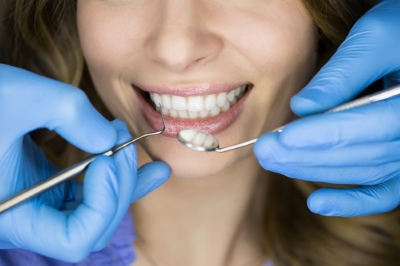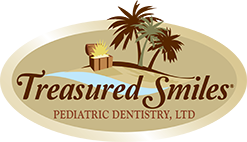4 Dental Treatments to Help With Bad Breath

No one wants bad breath. Proper oral hygiene can help prevent bad breath, and your dentist can add extra protection. Learn about a variety of dental treatments and procedures used to help reverse bad breath and improve your overall dental health.
1. Cavity Treatment
When your tooth decays and a cavity forms, the area may be prone to plaque, bacteria, and stuck food particles. All of those elements could result in bad breath.
Dental fillings prevent cavity growth and an increase in tooth decay. Once you treat a cavity, you may notice a difference in your breath right away. Continued treatment of your teeth will help eliminate plaque build-up.
2. Deep Gum Cleaning
Your gums could be key to bad breath problems. Deep pockets may form in the gums and result in a larger presence of bacteria. Routine cleaning may not be enough to clean out the plaque and bacteria build up underneath the gums.
A deep cleaning appointment focuses on the pockets between the gums and the teeth. A deep clean reduces bad breath along with plaque and bacteria and will also prevent gum diseases like gingivitis.
A dentist may schedule a deep cleaning every one to two years depending on the shape and formation of your gums. Sometimes deep cleanings are included in a regular cleaning. Other times, you will have a separate deep cleaning appointment.
A dentist may refer you to a periodontist to help treat the gums and provide additional treatment options. A periodontist will recognize and treat advanced gum diseases. The treatment of any gum disease will help with both bad breath and your overall dental health.
3. Tongue Scraping
Along with your teeth and gums, the tongue is prone to causing bad breath. The tongue often has high amounts of bacteria and bacteria may increase in numbers when not properly cleaned away. As the bacteria increase, the bad breath may worsen.
Along with your own routine tongue brushing, a dentist may perform a deep scrape on the tongue. During the deep scrape, a dentist reaches to the far back area of the tongue, the part more prone to bacteria collection. At home, the area may be harder to reach on your own.
A dentist uses a special tongue scraper tool to cover the width and depth of your tongue. Multiple scrapes help remove a majority of the bacteria. If you want to experience this benefit, add a deep tongue cleaning to your regular dental visit. A dentist may also teach you habits to properly brush and clean your tongue better at home.
4. Antibacterial Toothpaste & Mouthwash
Some mouths are prone to bacteria build-up, which results in more instances of bad breath. Along with habits like drinking more water and chewing sugar-free gum, a dentist may recommend an antibacterial toothpaste. The toothpaste replacement would be used each time you brush.
Traditional toothpaste contains fluoride to clean teeth and freshen breath while antibacterial toothpaste has extra ingredients to fight off the bacteria.
Triclosan is a common ingredient found in antibacterial toothpaste. Triclosan is an antibacterial agent that helps prevent the growth and spread of bacteria in your mouth. When you brush with the toothpaste, the triclosan remains in your mouth to help prevent bacteria throughout the day.
Along with the toothpaste, a dentist may offer mouthwash which also contains antibacterial agents. Ask for free samples to try out the products. A sample allows you to instantly refresh your breath before you purchase full-sized versions.
Book your dental appointment with us today at Treasured Smiles Adult & Cosmetic Dentistry. We will evaluate your mouth, point out any issues, and use our professional expertise to help reduce any bad breath ailment you have.
